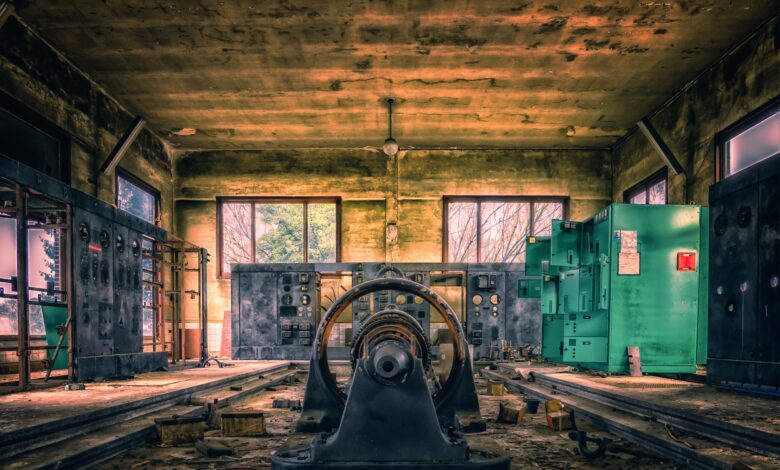How Long Does a Generator Last? Key Factors That Impact Runtime

A power outage can strike unexpectedly—whether from storms, grid failure, or maintenance issues. That’s where generators come in as reliable backup power sources. But one common question is: How long does a generator actually last?
While generators are incredibly useful, they are not built to run endlessly. Most are designed to operate for several hours at a time—not days without a break. Runtime and overall lifespan vary based on the type of generator, how it’s used, and how well it’s maintained.
In this guide, we’ll break down the different types of generators, how long they typically last, and what factors influence both short-term runtime and long-term durability.
Types of Generators & Their Expected Lifespan
Portable Gasoline Generators
Runtime per tank: 6–12 hours
Notable example: The Westinghouse WGen3600v can run up to 18 hours on a full tank.
Portable gasoline generators are widely used for short-term needs. They’re convenient, but their runtime is directly tied to fuel tank capacity and load. For longer use, you’ll need to shut down the generator to safely refuel it—never add gasoline while it’s running or hot to avoid fire hazards.
Natural Gas or Gasoline Portable Generators
Runtime: Varies depending on load and fuel tank size
To estimate how long your gas generator will run, divide its fuel tank capacity by its fuel consumption rate. Keep in mind that running on half-load significantly extends runtime compared to running at full capacity.
Generators connected to a natural gas line can run for up to 200 hours or more continuously, assuming the gas supply remains stable. However, during emergencies where fuel lines are damaged, runtime could be cut short.
Standby Generators
Runtime per fuel tank: 24–72 hours
Total lifespan: 300 to 500 hours per year; can last 25–30 years
Standby generators are permanently installed and automatically power your home during outages. Many run on diesel, propane, or natural gas. Diesel models usually come with large tanks, allowing up to 72 hours of runtime before needing a refill.
Some standby generators can run for 3,000+ hours total over their lifetime—enough to last several decades with minimal outages.
Propane Generators (Portable & Standby)
Runtime: 150–200 hours continuous with dual-cylinder setup
Propane generators are a clean and reliable option. You can extend runtime by connecting two propane tanks with a stopcock valve or auto-changeover regulator. This allows a continuous fuel supply for up to a week or more.
Solar Power Generators
Runtime: 3–12 hours depending on battery size and load
Best for: Small appliances and short-term use
Solar generators store power in batteries, measured in watt-hours (Wh). For example, a generator with a 1,000Wh battery might run a 100W LED light for 10 hours, or a 1,000W refrigerator for just one hour. They’re ideal for low-power devices and sustainable energy solutions but not meant for heavy-duty loads.
Continuous Power Generators
Built for: Industrial use and off-grid living
Runtime: Indefinite with proper maintenance
Lifespan: Shorter than standby generators
Continuous power generators are designed for ongoing operation, often used in commercial or off-grid setups. They include advanced cooling systems and durable engines, but due to constant use, they require more frequent replacement—typically every few years.
When Should You Replace a Generator?
Even the best generators don’t last forever. Here are signs it’s time for a replacement:
- Frequent Repairs: If your generator needs repairs more than once or twice a year, it may be nearing the end of its life.
- Age: Most standby generators last 10,000 to 30,000 hours, or around 25 to 30 years with proper care.
- Startup Issues: Delayed or failed startups—despite proper fuel levels and maintenance—can signal deeper problems.
Factors That Affect Generator Runtime and Lifespan
- Power Load Requirements
Higher wattage output requires more fuel. Running more appliances or high-demand devices will decrease runtime significantly. - Fuel Type & Efficiency
Generators running on diesel or propane tend to be more fuel-efficient and last longer than gasoline models. Natural gas offers unlimited runtime if supply is uninterrupted. - Build Quality & Warranty
High-end models from reputable brands typically last longer. Warranties range from 3 to 10 years, or 3,000 to 5,000 operating hours. - Routine Maintenance
Generators need regular oil changes (usually every 50–100 hours), battery checks, and cleaning to avoid rust or mechanical failure. Skipping maintenance shortens lifespan drastically. - Usage Frequency
A generator used frequently (especially at full load) will wear out faster than one used occasionally and properly stored between uses.
So, how long does a generator last? The answer depends on the type, fuel source, usage habits, and maintenance. Here’s a quick summary:
| Generator Type | Average Runtime per Use | Estimated Lifespan |
| Portable Gasoline | 6–12 hours | 1,000–2,000 hours |
| Natural Gas (Portable) | Up to 200 hours | Varies, dependent on use |
| Standby Diesel/Propane | 24–72 hours/tank | 3,000+ hours (20–30 years) |
| Propane (Dual Tank) | 150–200 hours | 1,000–2,500 hours |
| Solar Power | 3–12 hours | 5–15 years (battery dependent) |
| Continuous Power | Indefinite (with refueling) | 3–5 years (industrial use) |
With proper care and the right generator for your needs, you can ensure that you’re never left in the dark when the power goes out.




![How to Bypass CO Sensor on Generator – [4-Step Safety Guide]](https://www.generator411.com/wp-content/uploads/2025/08/co-sensor-on-generator-390x220.png)